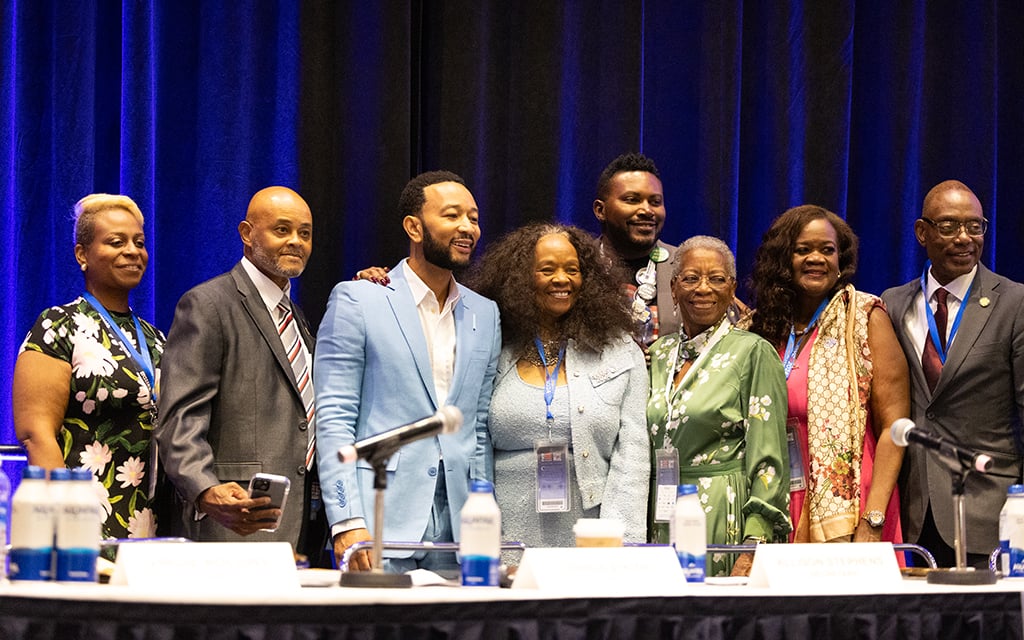
Arizona voters decide the fate for two of the most competitive U.S. House races in the nation. The two incumbent Republicans in Congressional districts 1 and 6 faced off against prominent Arizona Democrats. (Photo by Donovan Johnson/News21)
WASHINGTON – Freshman U.S. Rep. Juan Ciscomani of Tucson trailed his Democratic rival, Kirsten Engel, while seven-term GOP Rep. David Schweikert held a small lead over challenger Amish Shah in two of the most competitive House races nationwide.
Both Arizona contests remained too close to call on Wednesday.
Both districts were among the Democrats’ best opportunities to pick up seats in their bid to flip control of the House, where Republicans have held a razor-thin majority. If Republicans retain their majority, they would control the House, Senate and White House – a major boon for the agenda of former president Donald Trump, now the president-elect.
The Ciscomani-Engel race was a rematch. Engel, a former state senator, who fell short by 1.5 percentage points two years ago.
Both contests were among the most expensive in the country, each attracting about $35 million at last tally, according to data from campaign finance watchdog OpenSecrets.
Two Arizona incumbents coasted to reelection: GOP Rep. Paul Gosar of Bullhead City in the 9th Congressional District 9 and Democratic Rep. Raúl Grijalva of Tucson in the 7th District. Newcomer Yassamin Ansari, a Democrat, sailed to victory in the overwhelmingly Democratic 3d District, replacing Rep. Ruben Gallego of Phoenix as he angled for the U.S. Senate.
Other incumbents held solid leads without about 60% of votes counted: GOP Reps. Andy Biggs of Gilbert and Eli Crane of Oro Valley, and Democratic Rep. Greg Stanton of Phoenix.
Republican Abe Hamadeh hold a strong lead in Phoenix-area GOP stronghold district where Rep. Debbie Lesko, R-Peoria, is retiring.
1st District: David Schweikert vs. Amish Shah
Aides to Shah said they expect ballot counting in the Phoenix-area 1st District to continue through Saturday. Schweiker’s team expected results sooner.
“While it is too early to call the race, it is crucial that we count every lawful vote and uphold the democratic process,” Shah told supporters Tuesday night.
“In the meantime, I want to express my heartfelt gratitude to all the volunteers and supporters who have given their time and energy to this campaign. Your dedication to our shared values and the key issues that matter most to voters in our district has been invaluable.”
Shah, an emergency room doctor who served in the Legislature for five years, outraised Schweikert $5.7 million to $3.9 million through Oct. 24, according to campaign finance reports.
Each endured more than $10 million worth of attack ads from outside groups.
Republican consultant Jaime Molera said the spending reached “a threshold of so much money” that eventually it generated only “noise” for voters. He credited Arizona Democrats for being “more organized and much more well-funded” this fall.
Elected in 2010, Schweikert survived a close call in 2022. He won by just 3,000 votes – less than 1 percentage point. Six Democrats lined up in the primary for the chance to face him this year.
Democrats panned the deeply conservative Schweikert as out of step with a district where, according to Secretary of State data, independents account for a third of the electorate and Democrats for 27%.
Schweikert has long focused on fiscal responsibility and emphasized calls to reduce the nation’s debt and lower inflation.
Shah, an ER doctor at the Mayo Clinic in Scottsdale, highlighted abortion rights and emphasized his reputation for working across partisan lines in the state House even when that disappointed fellow Democrats. He resigned from the Legislature in February to focus on his bid for Congress.
He also vowed to secure the border, boost the economy, make health care more affordable and promote education.
6th District: Juan Ciscomani vs. Kirsten Engel
As of late morning Wednesday, Engel held a narrow lead in the 6th District.
“We must ensure that every lawful vote is counted and the will of the voters of Arizona’s Sixth is carried out, no matter how long it takes,” she posted Tuesday night on X.
It’s clear that we aren’t going to know who won this race tonight – and maybe not for several days. We must ensure that every lawful vote is counted and the will of the voters of Arizona’s Sixth is carried out, no matter how long it takes.
Thank you for all of the support.
— Kirsten Engel (@EngelForArizona) November 6, 2024
Ciscomani stayed off social media, apart from congratulating Trump just after midnight early Wednesday.
Congratulations to the 47th President of the United States Donald J. Trump and Vice President-elect JD Vance! 🇺🇸@realDonaldTrump @JDVance
— Juan Ciscomani (@JuanCiscomani) November 6, 2024
Like Schweikert’s constituents, about a third of Ciscomani’s are independents. Republicans hold less of an advantage in the 6th District, though – 36%-30% – and Engel fell short by just 5,200 votes two years ago.
Democrats hammered Ciscomani for opposing abortion rights and Proposition 139 to codify abortion rights in the state constitution.
The strategy was clearly meant to drive up Democratic turnout and to encourage Republican women to abandon him, Molera said.
Ciscomani is known as a relatively bipartisan member of a GOP conference controlled by hardliners. He ran on securing the border and fixing the economy and attacked Engel over a 2022 comment rejecting the idea that the U.S.-Mexico border was in crisis.
The focus on border security and the economy was smart, Molera said, and being “seen as a more centrist Republican has helped him a lot.” But, he said, Engel’s financial backing had “a huge impact in helping her become as competitive as she is.”
Engel, a University of Arizona law professor who served in both houses of the Legislature before turning her sights on Congress, outraised Ciscomani $7.6 million to $6.2 million, according to OpenSecrets.
Another $22 million poured into the race from outside groups, about evenly split between each side.
She emphasized reproductive rights and water rights and accused Ciscomani of being far less moderate than he wants voters to believe – citing his opposition to abortion rights and his affiliation with the Patriot Academy. That’s a Christian nationalist group that seeks to “train citizens to understand and influence government policy with a biblical worldview.”
Engel garnered the endorsement of abortion rights supporters. She was also backed by groups such as “March for Our Lives” that seek to curb gun violence.








